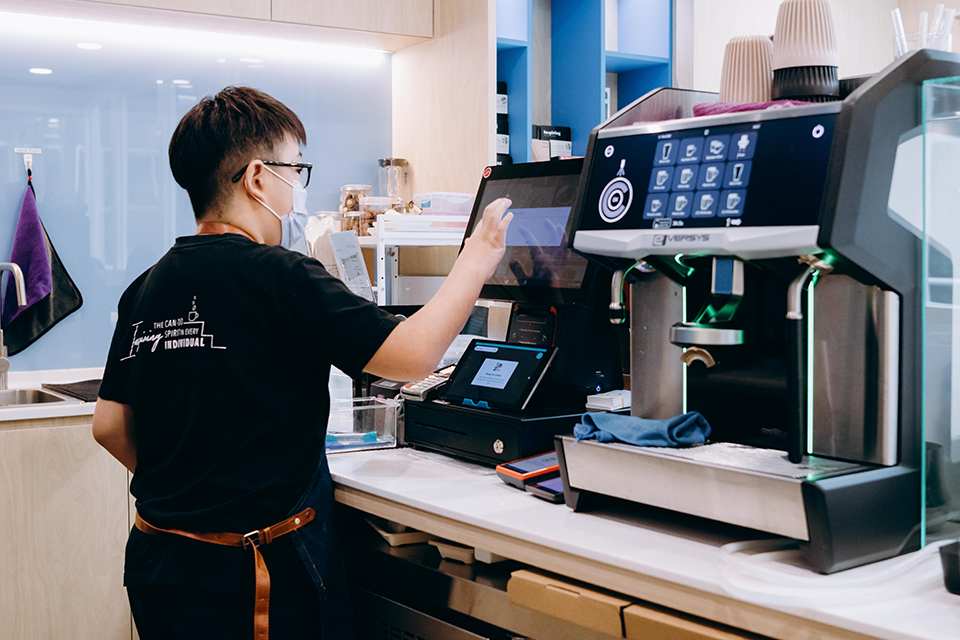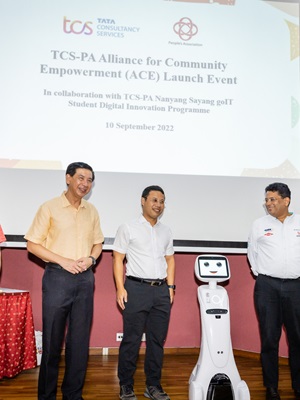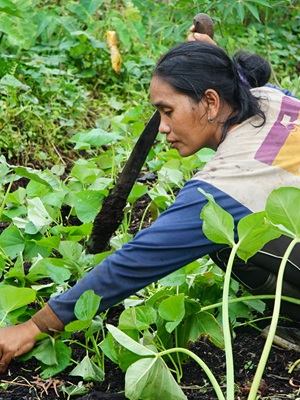Foreword Coffee Roasters employs people with disabilities, special needs and those in recovery from mental health conditions. To us, building a strong team means having people from diverse backgrounds with different abilities and strengths that contribute meaningfully to the workplace. Most of the time, we observed that the first hurdle that our employees needed to overcome was their lack of self-esteem. For them, working at Foreword could be their first job upon graduating from a special education (SPED) school. Or it could be their first job placement after an extended period of unemployment.To ease the transition into the workplace, we break down a job role into its tasks, and break down the tasks into sub-tasks. We do not expect new employees to “plug and play.” Instead, we provide the time and guidance and scaffold the learning into manageable chunks, which allows our employees to gain confidence by first mastering the easy tasks, before moving on to more difficult ones.
 The coffee machine that foreword uses to make the coffee-making process easier for its staff
The coffee machine that foreword uses to make the coffee-making process easier for its staff
In Foreword, we talk about emotions all the time. Part of the responsibilities of managing a diverse team is acknowledging the emotional baggage that they carry. This makes us different from most businesses which expects employees to manage their own emotions and mental health.
Psychological theories involving motivation, behavioural analysis and emotional theory are made known to employees through our employee handbook. Our leadership team is coached on the practice of these theories in the workplace, which helps us to extend the “validity” of our patience working with employees who require higher support.
An empathy-driven approach to problem solving
Patience is key to being empathic towards our employees. Empathy is necessary for us to solve problems effectively. We are mindful of how we protect the level of patience we have and encourage creativity to try new ways to overcome issues faced in the workplace. When we see improvements made because of our creative process, our patience is replenished, and we are further motivated to work with our employees to make further progress.
![a-perspective-from-a-coffee-brewer_web_2[1].png](/images/digitalhublibraries/articles-categories/1bec9106-bb1e-414c-a6e5-5d7be0a6e9d0.png?sfvrsn=2f5636b1_2)
Foreword's cyclical approach towards
A different kind of return on investment
The returns we get from the investment of our resources into our employees go beyond the workplace and cannot be fully measured in dollars. With gainful employment, other outcomes would include reduced caregiver burden, increased self-esteem, improved emotional resilience and independent living. In the workplace, we assess our employees’ abilities to learn and retain new skills and knowledge to determine how their job scopes can be expanded, which in turn lead to career advancements, further reinforcing the positive outcomes in other areas.
The Mere Exposure Effect
Positive externalities may also be reaped by having our employees with disabilities at the front of our cafés. When café-goers interact with our employees with disabilities, the positive experience with disability may develop into a preference for it. This psychological phenomenon is known as the Mere Exposure Effect. With increased and regular interactions with our employees, we hope for the public to accept persons with disabilities in other situations outside our cafes.
![a-perspective-from-a-coffee-brewer_web_1[1].png](/images/digitalhublibraries/articles-categories/5518f427-0d8d-431f-b38d-0b3dc86f0950.png?sfvrsn=df22c0c5_2)
The foreword team during Christmas 2019
While it is difficult to quantify the social returns of investments, it is imperative for businesses to invest resources into our human capital beyond looking solely at financial returns. Employees know if we genuinely care for them or if they are treated simply as a number within the organisation. A human-centred approach towards the management of resources in Foreword guides us to make decisions that consider the benefits of our employees. What goes around comes around; when employees feel valued and trusted by their leaders, psychological safety is built into the organisation’s culture. With internal stability, we may then focus on defending our organisation’s position in the competitive business world.
Posted 01/02/2023
















